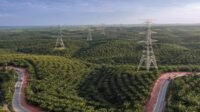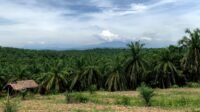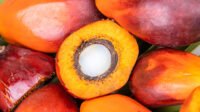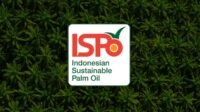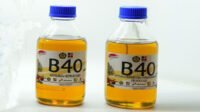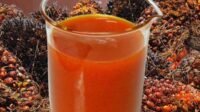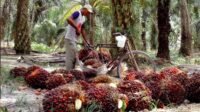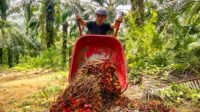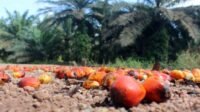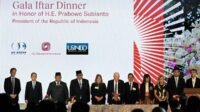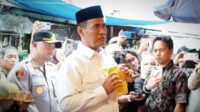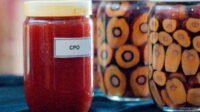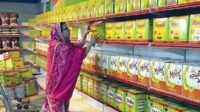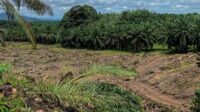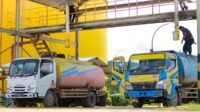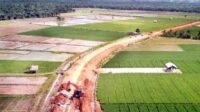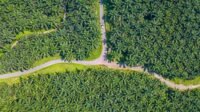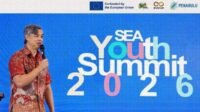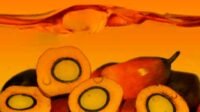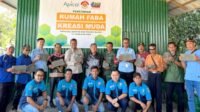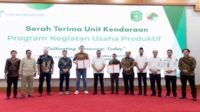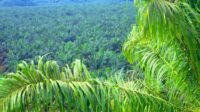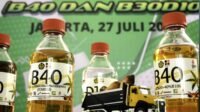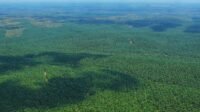PALMOILMAGAZINE, MEDAN — Sinar Mas Agribusiness and Food reaffirmed its commitment to building a more responsible and sustainable palm oil industry through the 11th SMART SEED Supplier Engagement Forum, held on Tuesday (11/11) in Medan, North Sumatra. The event brought together more than 100 supplier companies, buyers, academics, NGOs, and internal representatives to strengthen sustainability efforts across the entire supply chain.
Carrying the theme “GAR’s Sustainability Journey: Collective for Impact, Together in Action,” this year’s forum emphasized the need to move beyond written commitments and focus on measurable, real-world actions — from traceability and environmental protection to smallholder empowerment.
In his opening remarks, Ian Suwarganda, Director of Sustainable Supply and Production, stressed that industry transformation will only happen through joint efforts.
“We cannot achieve a sustainable palm oil supply chain alone. Real change happens when everyone moves together,” he said in an official statement quoted by Palmoilmagazine.com, Sunday (16/11/2025).
“Our focus is on tangible transformation — full traceability, no deforestation, lower emissions, and ensuring that smallholders are not left behind.”
The forum also served as a platform for companies to share their sustainability progress, including updates on goals within the Collective for Impact framework. All suppliers were once again encouraged to align with the No Deforestation, No Peat, No Exploitation (NDPE) principles.
Strengthening NDPE and Emission Reporting
The first session highlighted updates on the NDPE Implementation Reporting Framework (NDPE IRF), including the transition to Version 6.0. The new model not only evaluates deforestation-free and peat protection performance but also strengthens emission reporting across supply chains.
Sinar Mas Agribusiness and Food recorded 99% implementation of NDPE IRF Version 5.8 in 2024, classified under the “Delivering” category. The company aims to establish the baseline for Version 6.0 by the end of 2025, covering three supply sources: managed estates, independent plantations, and smallholders.
Suppliers were encouraged to improve data transparency and contribute to emission reduction efforts in support of a low-carbon palm oil supply chain.
Human Rights and Smallholder Empowerment
The second session focused on human rights (HR) issues and smallholder empowerment. Through programs such as Sawit Terampil, human rights training, and updates to the Human Rights Due Diligence (HRDD) framework, the company emphasized that sustainability also means ensuring the protection of workers’ and communities’ rights.
Both sessions reinforced a central message: transformation of the palm oil industry can only be achieved through collaboration, accountability, and collective action.
Recognizing High-Performing Suppliers and Partners
To strengthen collaboration, Sinar Mas Agribusiness and Food awarded 13 suppliers and partners for outstanding sustainability performance throughout the year.
- Six companies received the Human Rights Transformation Award for significant improvements following the HRDD process.
- Another six companies earned the Carbon Data Collaboration Award for transparency and their contribution to emission reporting.
A special award was given to the KJSLJ – Sawit Terampil cooperative for its commitment to empowering smallholders toward sustainable farming and certification readiness.
One awardee, Lesmana from Inecda Plantation, said the recognition serves as both appreciation and a reminder that human rights work centers on people — requiring consistency and care.
About Sinar Mas Agribusiness and Food
Operating under Golden Agri-Resources (GAR), the company is one of the world’s largest palm oil plantation managers, with more than half a million hectares of plantations including plasma farms. Its operations span the entire value chain — from cultivation and fresh fruit bunch processing to CPO refining, the production of cooking oil, margarine, shortening, biodiesel, and global trade.
GAR, established in 1996 and listed on the Singapore Exchange, recorded a market capitalization of US$2.5 billion as of June 2025. PT SMART Tbk, one of its subsidiaries, has been listed on the Indonesia Stock Exchange since 1992. (P2)



